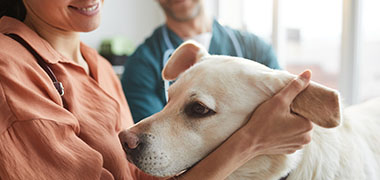
This role has a moderate level of AI exposure. AI can enhance efficiency for some tasks, but this job still relies on human skills and decision-making.
Explore all careersA Wildlife Rehabilitator cares for injured or orphaned wildlife, providing medical treatment and rehabilitation to prepare them for release into their habitats.
Get qualified to work as a Wildlife Rehabilitator with a course recognised across Australia. Speak to a training provider to learn more.





Browse occupations related to Wildlife Rehabilitator



Are you passionate about wildlife and looking to make a difference in the lives of animals in your local area? Enrolling in Wildlife Rehabilitator courses in Gisborne could be your first step toward a rewarding career. In Gisborne, situated in the heart of Victoria, Australia, aspiring wildlife rehabilitators can choose from various qualifications designed to equip them with the necessary skills and knowledge. The Certificate III in Wildlife and Exhibited Animal Care is an excellent beginner course for those new to the field, and it is delivered by the esteemed Taronga Training Institute.
For experienced learners looking to advance their education, the Bachelor of Science (Animal Biology) offered by Deakin University is a fantastic opportunity to deepen your understanding of animal care and wildlife rehabilitation. With these Wildlife Rehabilitator courses in Gisborne, you will be well-prepared to work with injured and orphaned animals, contributing positively to the conservation efforts in your community.
In addition to training, it's also vital to explore related job roles that can complement your newly acquired skills. Opportunities like a Pet Groomer, Animal Attendant, or Wildlife Carer can all serve as pathways towards your ultimate goal of becoming a Wildlife Rehabilitator. Moreover, gaining experience as a Zoo Keeper or Zoologist can provide invaluable hands-on experience as you navigate your career in wildlife care.
Whether you are starting from scratch or looking to advance your qualifications, Gisborne has quality options to help you achieve your dreams in wildlife rehabilitation. Take the plunge today, and explore the Wildlife Rehabilitator courses in Gisborne to find the path that suits you best. With dedicated training providers like Taronga Training Institute and Deakin University, you’re sure to receive top-notch training that prepares you for a fulfilling career caring for Australia’s unique wildlife.